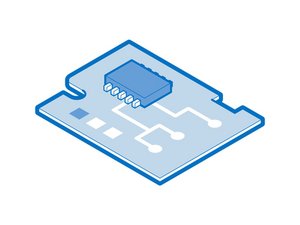Hi @hoosier1990, welcome to the Revolution!
I can only repeat what @oldturkey03 and @hellomacos has already said, but I can add a few things also.
Ask around on social media you use, like Facebook or whatever, to reach out and get in touch with other people who like to repair instead of replacing. I live in Norway, and sadly 8 of 10 around here don't repair (not even attempt), they just replace. This is sad, because a large portion of those discard the devices (eco friendly of course, to recycle), but this just gets shipped to God knows where and things that could have been repaired for less than $10 in parts are just recycled.
I am trying my best to get the message out over here, that there are people like me and other that gladly would come to their house to pick up the stuff so they don't have to bother with it, but it's very hard to really get through to people who are dead set in their ways.
The bonus is though, because I am slowly getting the message out, I have pretty steady access to "broken" devices that I can work on and most times the fixed stuff I sell to fund me building up a parts stock. I started by scrounging parts from beyond repair devices to fix those that could be fixed, and now I keep some thing in stock (mostly electronic components and small engine parts).
If your desire is to work on mobile phones and laptops, then I'd say start with the earlier (now soon to be collectors items) devices like fex iPhone 5 and later. I wouldn't go earlier than 5 on the iPhones personally, though I have done it on occasion. I find the 4 and 4S a bit too troublesome. As for laptops, 2010-2014 MacBook Pros are readily available and are surprising workhorses when fixed.
I have a 2018 MacBook Pro with TouchBar that I don't really use and my daily driver is the 2021 MacBook Pro M1 Pro (The Beast).
BUT: I picked up a 2011 MacBook Pro 13" for next to nothing because the owner said it was defective. It wasn't. I upgraded from 2GB memory to 16GB memory and replaced the HDD for an SSD and that is my current development machine that I bring around with me. It is surprisingly fast, even at multitasking and I use it to compile code, with zero problems.
Don't knock old devices, just because new ones are on the market. There is a market for older devices, for sure.
I can't really explain how I learned to do what I do, because I'm >95% self taught. Technology is something I don't have to really study or read, I mostly get it, without knowing why. That's even how I "learned" to write code; I found some code (without ever having seen code before) and just understood it. Go figure...
DO NOT be afraid to ask questions! Seriously, don't be afraid. My profound belief is that there are no stupid questions, only stupid answers. People (particularly those who berate users who ask what could be considered a basic question) forget that they also were new at one time, and needed to learn even the most basic stuff.
The moderators here on iFixit (and the staff) are SUPERB people who genuinely want to help others. If they see users berate or belittle those who ask questions, they are quickly there to take care of it.
Recycling is good; Repairing is GREAT!
War diese Antwort hilfreich?
Bewertet
Rückgängig machen
Bewertung
7
Abbrechen
Schau durch den Thread, bis du den richtigen Platz für diesen Kommentar gefunden hast. Klicke dann auf "Den Kommentar diesem Post zuordnen", um ihn zu verschieben.

 2
2  2
2 
 7
7 



2 Kommentare
I wish I could accept all of your answers! Thank ya'll so much! What tool kit would ya'll recommend I get? What is the best brand to start practicing on? Are there any sources outside of ifixit that I should look into?
von hoosier1990
@hoosier1990 I would recommend two kits: The iFixit Manta kit (the biggest driver kit they've got), and the ProTech ToolKit. Both are excellent kits and I personally use the Manta kit every single day.
As for where to start; The early iPhones 5-7 (maybe 8) and early Samsungs are very easy to work on. Same goes for the earlier MacBooks (2010-2015/6).
If you're looking for sources for parts, it kinda depends on where in the world you're located. If you're in the US, then you've got it pretty easy. iFixit has a great selection of parts. Just about anything. I have used ReplaceBase and InjuredGadgets (I'm located on the other side of "the pond").
von Geir Ove Andersen